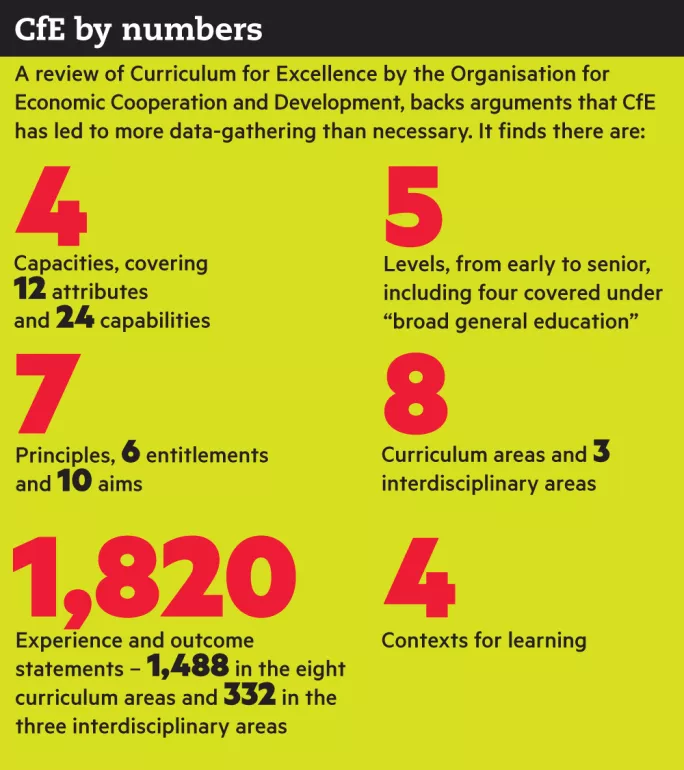Watch out you don’t become a slave to data, heads told

Schools that become slaves to data risk overlooking the widely varying needs of individual pupils, the chief data officer of one of the UK’s biggest retailers has suggested.
Andrew Day, who works for the supermarket giant Sainsbury’s, advised Scottish secondary heads that a “data-driven” approach could lead to the misleading idea of an “average” pupil that ignored the realities on the ground.
Such an approach could result in misplaced priorities, as those students who were far below or above a notional average - which might scarcely exist in reality - could become lost, even though their needs were frequently more pressing.
“If a man has his head in the fire and his feet in the fridge then, on average, he’s warm - if you’re running a business based on those averages, then you’re going to do things wrong,” Mr Day said.
The perceived benefits of a data-driven approach have been at the heart of one of the most contentious issues in Scottish schools in recent years: the government’s drive towards standardised assessment under the National Improvement Framework (NIF).
Mr Day explained that his company now appreciated that, even in different parts of a single city such as Glasgow, stores should not offer a uniform range of produce. “You’ve got to differentiate your products based on the people you’re trying to appeal to,” he said.
‘Give staff more freedom’
Mr Day, who has also worked for communications company O2 and media business News UK, told the headteachers that leaders should “never lose sight of what makes [their] organisation great”. This is a danger if they become overly reliant on data, he said.
Leaders should discard old notions of top-down hierarchies and give staff more freedom in deciding what work to prioritise, he said. An example of this approach was Sainsbury’s ditching the term “head office” in favour of “store support centre”.
Mr Day said that the starting point for effective leadership was clarity of purpose: the “vision statements” of successful global companies such as Amazon and Nike averaged only 14.5 words. He added that if a leader was in a lift with a colleague, that colleague should be able to explain succinctly the purpose of their work in the time it took to reach their floor.
Leaders should “speak the language of the business” that their staff use and avoid the impenetrable jargon that data can lead to, he said, adding: “Don’t treat people like idiots - be honest with them.”
‘Unfair’ league tables
Mr Day made his comments at the annual conference of School Leaders Scotland (SLS) at Loch Lomond, where another speaker from a very different line of work had a similar message on data.
Community Justice Scotland chief executive Karyn McCluskey - who was previously director of the Scottish Violence Reduction Unit - highlighted contradictory newspaper headlines about crime statistics that stemmed from the same data.
She cited a quote attributed to the US chemistry professor Fred Menger: “If you torture data sufficiently, it will confess to almost anything.”
Such concerns about an over-enthusiastic approach to data have emerged as the government proceeds with promoting the NIF, which will usher in an era of national standardised assessment in Scotland.
Critics have said that the data will inadvertently lead to unfair school league tables and, in turn, superficial “teaching to the test”.
In the foreword to a document introducing the NIF in January, first minister Nicola Sturgeon said that the framework would “provide a level of robust, consistent and transparent data across Scotland that we have never had before, to extend our understanding of what works and to drive improvements across all parts of the system”.

You need a Tes subscription to read this article
Subscribe now to read this article and get other subscriber-only content:
- Unlimited access to all Tes magazine content
- Exclusive subscriber-only stories
- Award-winning email newsletters
Already a subscriber? Log in
You need a subscription to read this article
Subscribe now to read this article and get other subscriber-only content, including:
- Unlimited access to all Tes magazine content
- Exclusive subscriber-only stories
- Award-winning email newsletters